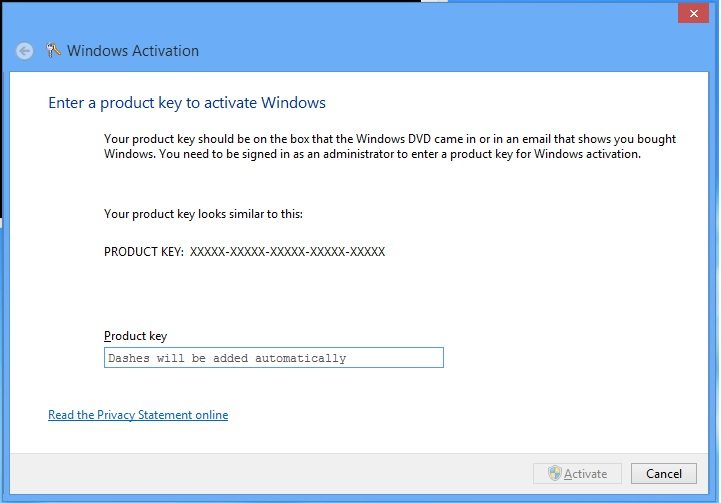Microsoft To Change Activation System For Windows 9, No More Product Keys
Ryan Martin / 10 years ago

Infamous Windows leaker WZOR has been at it again revealing more interesting details about the upcoming Windows 9 OS. Microsoft is set to overhaul the way Windows 9 is activated and will ditch the current product key system. In its place Microsoft will make having a store account with them compulsory, you will have to buy your license from the store and it will give you a generic ISO file to install your OS with. Once you install that ISO file your system will then be profiled (most likely motherboard related details) and then linked to your account and activated. To move to another machine you simply deactivate the install on the last system, redownload the generic ISO file and go through the online syncing process again. The concept will be applied to 3-user and 5-user family licenses as well as individual licenses.
Straight away there are obvious issues with the new method of activation. Firstly, you have to get a Microsoft store account, whether you want one or not because your activation is linked to your account. Secondly, you will need an internet connection to use your PC and install your OS, this may not sound like an issue for home users but for business users this could be a deal breaker: especially those on closed networks. Thirdly, motherboard upgrades will essentially break your system so you will have to reinstall your OS, annoying if you’re just making a same chipset family upgrade: such as Intel H81 to Z87 where a reinstall is not needed. Fourthly, if all licenses are sold via the Microsoft store then Microsoft are cutting retailers and resellers out of the operating system market: they can no longer sell licenses if they have to be acquired via the Microsoft store because there are no product keys to sell. In summary Microsoft are trying to force an “always-online” style of DRM onto the Windows OS, if this is the case, I don’t think it will go down very well at all. We saw a huge community retaliation against Microsoft’s attempt to make the Xbox One “always online”, I am sure we will see a similar thing within the desktop environment.
What are your thoughts on Microsoft’s new Windows activation system?
Source: BetaNews
Image courtesy of Caltech.edu



















